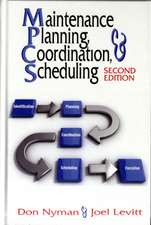Semantic Technologies in Content Management Systems: Trends, Applications and Evaluations
Editat de Wolfgang Maass, Tobias Kowatschen Limba Engleză Paperback – 22 feb 2014
| Toate formatele și edițiile | Preț | Express |
|---|---|---|
| Paperback (1) | 483.12 lei 6-8 săpt. | |
| Springer Berlin, Heidelberg – 22 feb 2014 | 483.12 lei 6-8 săpt. | |
| Hardback (1) | 642.68 lei 6-8 săpt. | |
| Springer Berlin, Heidelberg – 5 ian 2012 | 642.68 lei 6-8 săpt. |
Preț: 483.12 lei
Nou
Puncte Express: 725
Preț estimativ în valută:
92.44€ • 96.33$ • 76.54£
92.44€ • 96.33$ • 76.54£
Carte tipărită la comandă
Livrare economică 03-17 aprilie
Preluare comenzi: 021 569.72.76
Specificații
ISBN-13: 9783642447402
ISBN-10: 3642447406
Pagini: 216
Ilustrații: X, 206 p.
Dimensiuni: 155 x 235 x 11 mm
Greutate: 0.31 kg
Ediția:2012
Editura: Springer Berlin, Heidelberg
Colecția Springer
Locul publicării:Berlin, Heidelberg, Germany
ISBN-10: 3642447406
Pagini: 216
Ilustrații: X, 206 p.
Dimensiuni: 155 x 235 x 11 mm
Greutate: 0.31 kg
Ediția:2012
Editura: Springer Berlin, Heidelberg
Colecția Springer
Locul publicării:Berlin, Heidelberg, Germany
Public țintă
Professional/practitionerCuprins
Part A: Introduction to CMS and SemanticsPart B: The Future of CMSPart C: Evaluation of Content Management Systems
Textul de pe ultima copertă
Content Management Systems (CMSs) are used in almost every industry by millions of end-user organizations. In contrast to the 90s, they are no longer used as isolated applications in one organization but they support critical core operations in business ecosystems. Content management today is more interactive and more integrative: interactive because end-users are increasingly content creators themselves and integrative because content elements can be embedded into various other applications. The authors of this book investigate how Semantic Technologies can increase interactivity and integration capabilities of CMSs and discuss their business value to millions of end-user organizations. This book has therefore the objective, to reflect existing applications as well as to discuss and present new applications for CMSs that use Semantic Technologies. An evaluation of 27 CMSs concludes this book and provides a basis for IT executives that plan to adopt or replace a CMS in the near future.
Caracteristici
An introductory chapter discusses the new challenges and trends of web-based content management The future of Semantic Content Management Systems (CMS) is discussed by seven experts from industry and academia Provides 27 up-to-date profiles of CMS providers for IT executives that plan to replace or purchase a new CMS Includes supplementary material: sn.pub/extras














